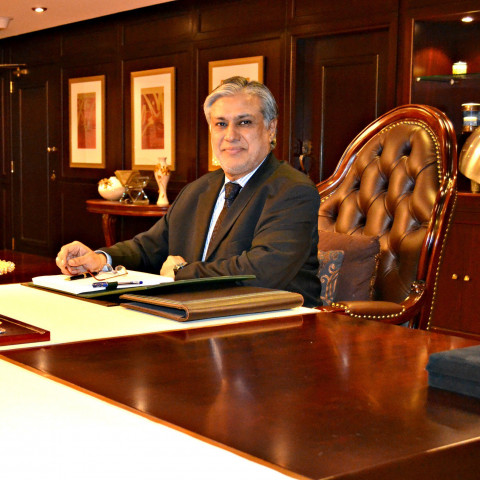Life after the IMF to remain thorny
Government’s claim of bidding farewell must be tested by enacting comprehensive structural reforms

PHOTO: WIKIPEDIA
IMF Managing Director Christine Lagarde hopes Pakistan will continue structural reforms towards restoring macroeconomic stability and resilience for higher and more inclusive growth.
'Pakistan headed towards another IMF bailout'
Was the IMF the only institution the government has been borrowing from?
Over the past three years, $2.8 billion were sought from commercial banks, including Noor Bank of Dubai, Dubai Bank and UBL Dubai, without transparent competitive bidding. The practice is not going to go away even if the IMF loan facility has been sent-off.
The government’s claim of bidding farewell to the financial institution must be tested against the recently-concluded Extended Fund Facility’s (EFF) goals of rebounding the economy, resolving the balance of payments crisis along with building stable foreign exchange reserves and lessening the fiscal deficit by enacting comprehensive structural reforms.
The EFF was catalytic in passage of the Anti-Money Laundering Act and restoring autonomy of the State Bank of Pakistan. The IMF will continue to advise Pakistan on these matters during its post-programme monitoring.
Long-term challenges
In the past, Islamabad borrowed $11 billion from the IMF in 2008 after failing to achieve exactly the same goals. The most immediate challenge at hand will be slow but steady decline in foreign remittances from Arabian Gulf nations, which are in the process of fiscal tightening owing to low oil prices and war cries.
At the heart of the matter remains the performance of the Federal Board of Revenue (FBR) where incompetence and corruption remain among the main allegations. Every finance minister promises to raise the tax base but ends up taxing the already-taxed even further. With more than half the term exhausted, the wealthy continue to evade tax, listing Pakistan amongst countries having lowest tax-to-GDP ratio globally.
The IMF and Pakistan
Finance Minister Ishaq Dar has been optimistic about the board’s performance. He recently eulogised the FBR for “not only achieving its annual target of Rs3.104 trillion but surpassing it.” The minister compares its performance against the Rs40 billion target shortfall recorded in the first quarter. His figures don’t suggest the tax base has increased or that the elite is paying its due.
Corruption in the public sector institutions is a genie left unchecked. Efficiencies of state institutions in service provision ranging from regulators to ministries, and customs official to port and dry port authorities are restrained by forbidden transactions at the cost of national prestige and exchequer.
Trade deficit will continue to suck out valuable foreign exchange unless the government matches its rhetoric with action on enhancing domestic industrial production to boost exports.
The government claims industrial sector growth of 6.8% in the ongoing fiscal year, thanks to enhanced supply of electricity and gas. The expansion of industrial base can be gauged with upward growth in the employment sector.
Even senior government functionaries have no predictions about the impact of China-Pakistan Economic Corridor on domestic production. For instance, what are the safeguards against dumping of cheaper Chinese goods in Pakistan?
Third challenge ahead of fixing loss making public corporations is no less daunting. To name a few, line losses in electricity and gas supply systems, and dysfunctional Pakistan International Airlines are elephants in the room. For mere political expediency, stern decisions continue to be deferred while burdening the shrinking middle class.
IMF clears payment to Pakistan in 3-year programme
Conflict with India can’t be ruled out. India is arming its military to the teeth to not only match the country’s strategic ambitions. Investment in military modernisation also feeds into Modi’s religio-nationalistic aspirations. Will the economy be resilient enough by summer when an outbreak of hostilities is likely along the Line of Control? The answer is anybody’s guess.
Economic growth
The lasting boost in economy requires pragmatic but aggressive decision-making if the government wishes to interface the electorate from the position of strength. Undoubtedly, Pakistan requisites rebranding of its image after marked improvement in law and order situation, thanks to a successful campaign in Waziristan and kick starting of a logistical corridor from China.
Last but not the least, instituting the economy on solid footing depends equally on the federation as on the federating units. The most genuine political bouts don’t merit adversely impacting the country’s financial health, especially when an independent judiciary, election commission and the parliament are functioning as per their mandate.
The writer is an investigative journalist and academic with extensive reporting experience in the Middle East and North Africa
Published in The Express Tribune, November 14th, 2016.
Like Business on Facebook, follow @TribuneBiz on Twitter to stay informed and join in the conversation.


















COMMENTS
Comments are moderated and generally will be posted if they are on-topic and not abusive.
For more information, please see our Comments FAQ